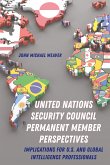Focusing on peacebuilding, this book emphasizes how "grassroots" peacebuilding efforts contribute to closing the gap between the Israeli and Palestinian national communities that have been in conflict for decades. The analysis is undertaken at the individual, pair, and entity levels. The book explores how those involved at each level view the relationship with the other and act to bring about coexistence, a shared society, or peace in a sustained way amid major challenges and an uncertain future. A strong argument is to cultivate and embrace "the habits of peace," mainly wider perspective, long-term view, compassion, dialogue, forgiveness, nonviolence, and reconciliation. An open letter to Palestinians and Israelis concludes the book, urging them to reconsider their ways and imagine a better tomorrow for themselves and future generations.
"Saliba Sarsar has written an outstanding book on the necessity of peace in Israeli-Palestinian relations. He pays considerable attention to exploring peacebuilding at three levels-individual, pair, and group-in order to show that peace is everyone's responsibility. As he argues, Israelis and Palestinians cannot be hostages to their past; their present and future depend on their joint work. It is the people who must live the peace ... together!"-Sami Adwan, Professor of Education and Editor of Side by Side: Parallel Histories of Israel-Palestine








